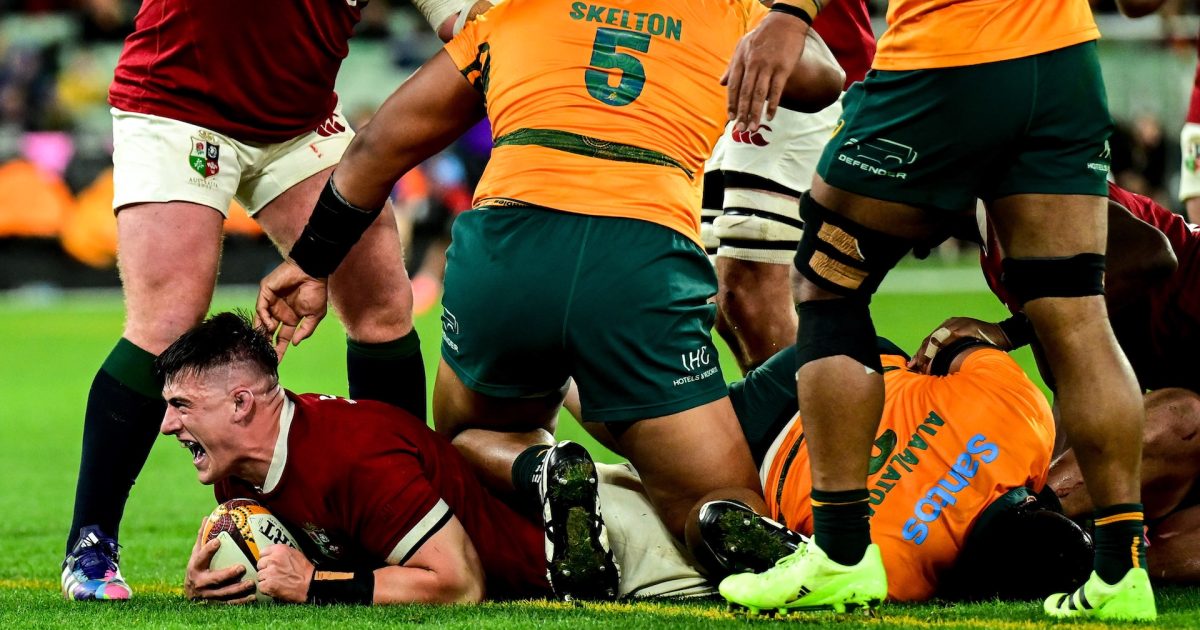Within seconds of scoring the British & Irish Lions’ opening try in the second Test against Australia at the MCG, fans were questioning the legality of the try online.
The hooker crossed the whitewash after 15 minutes in Melbourne after taking a tap from five metres out, but the manner in which he crossed the line has been called into question, as he leapt over his counterpart, Dave Porecki, to score.
Fans immediately took to X to query the legality of the try, as many believe players cannot jump to avoid a tackle – Blair Murray’s disallowed try against Scotland in the Guinness Six Nations this year being a prime example.
“So you can dive over a tackle but not jump? What’s the difference?” one fan wrote on X, while another wrote “Such a stupid rule, impossible to defend… very unfair on the defending side.”
Our opening score tonight at the @MCG 🦁
Watch every game live on @SkySports. #Lions2025 https://t.co/GYZQ6GRFrK pic.twitter.com/lKs2vE7uhw
— British & Irish Lions (@lionsofficial) July 26, 2025
One fan even wrote: “The Dan dive soon to be outlawed by World Rugby!”
Well, World Rugby have already addressed this issue in the past, as this is not the first time that a player has jumped over an opponent to score a try.
In a clarification of the laws written in 2022, World Rugby wrote: “Jumping to hurdle a potential tackler is dangerous play, as is the act of a ball carrier jumping into a tackle. Even if no contact is made, we believe this act is in clear contravention of law 9.11, and runs contrary to the game-wide focus on player welfare.
“A ball carrier may dive with the ball in order to score a try, and we all agree that should be allowed. From an equity perspective, if they do so, a defender may attempt to make a safe and legal tackle on that player. As we have said above, jumping to avoid a tackle should be regarded as dangerous play and should be sanctioned accordingly, even if no contact is made.
“Player welfare should remain the priority deciding factor for match officials in these very rare situations. In such instances as this rare example, which involves great player skill and dexterity, match officials have to make a judgement call as to which actions have taken place. If there is any element of dangerous play, in line with the above ruling, then a try cannot be the reward.
“In principle, in a try scoring situation, if the action is deemed to be a dive forward for a try, then it should be permitted. If a player is deemed to have left the ground to avoid a tackle; or to jump, or hurdle a potential tackler, then this is dangerous play and should be sanctioned accordingly.”
